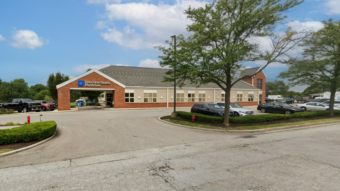The construction industry has experienced the highest death rate attributed to drug overdoses, according to a CDC study. With safety being one of its core values, Ryan Companies US, Inc. will distribute naloxone at more than 100 construction sites and all its regional offices nationwide.
Naloxone is a life-saving opioid reversal medication. Last year, the Food and Drug Administration approved naloxone for non-prescription, over-the-counter use for the first time.
In addition, the company will make overdose response training available to its nearly 2,000 employees in the coming months. In March, Ryan also made a commitment to the White House Challenge to Save Lives from Overdose.
“At Ryan we are committed to making sure that all of our employees and subcontractor partners make it home to their families safely at the end of the day,” said Brian Murray, chief executive officer with Ryan Companies. “Our team is taking initiative to ensure we are prepared, educated, and willing to intervene to save someone’s life.”
Ryan plans to make overdose response training available to its employees annually through video courses and in-person demonstrations. Naloxone will be available on Ryan construction sites and in every Ryan corporate office by the end of the summer. These programs are being coordinated in partnership with SAFE Project, a national nonprofit that has provided naloxone training to 10,000 people nationwide.
“The opioid epidemic has severely impacted the construction industry in recent years, and we realize it’s more important now than ever for our teams to have access to life-saving opioid reversal medication,” said John Gaddini, corporate safety director, Ryan Companies. “Our hope is that employees will never have to administer naloxone but with the training they will receive, they will be ready to act in the event of a life-threatening scenario.”
According to the CDC, overdose deaths in the construction industry increased nine times from 2011 to 2018. CDC research also shows one out of three construction workers have suffered soft-tissue injuries such as carpal tunnel syndrome, tendinitis and rotator cuff injuries, and prescription opioid use is three times higher among construction workers with these ailments.




